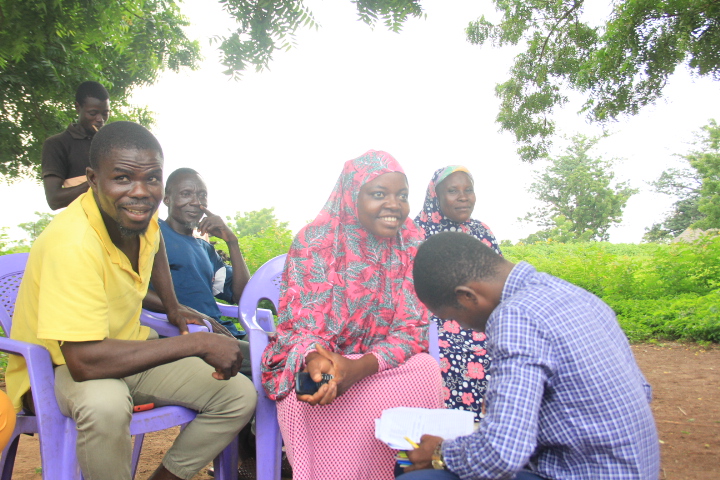As part of the GESI activities for year 3 of the GROW2 project, our GESI office, with support from the MEDA GESI team, organized a community dialogue on gender equitable workload within households within the Lingbinsi community in the North Gonja district. This activity was a result of the rate of gender gaps in terms of domestic work, access to economic opportunities, and the inability of couples to make decisions together.
This engagement was meant to serve as a platform for awareness creation on gender equitable workloads and pave the way for women to have enough time to engage in economic activities. The gender equity workload ensures a fair distribution of unpaid care work within households, intending to reduce time poverty amongst women and household burdens. The redistribution allows men to understand the effects of unpaid care work on women and girls, hence, increasing their support for them.
The gender module families who participated in the event shared their experiences on how the redistribution of workload within their households has impacted them positively. Women from these families or households have established businesses with the help of their spouses due to the availability of time. Participation in household decision-making has also promoted peaceful coexistence between spouses and co-wives and a good understanding of their children’s needs.
This initiative has fostered peace within households, thereby reducing the cases of SGBVs, improving economic stability, proper dietary and nutritional health, and increasing focus on children’s education and well-being, amongst others. A gender equality champion (GEC) who participated in the dialogue intimated that “equitable distribution of responsibilities and resources is the beginning of peace, unity, and good health at the household level’”.


